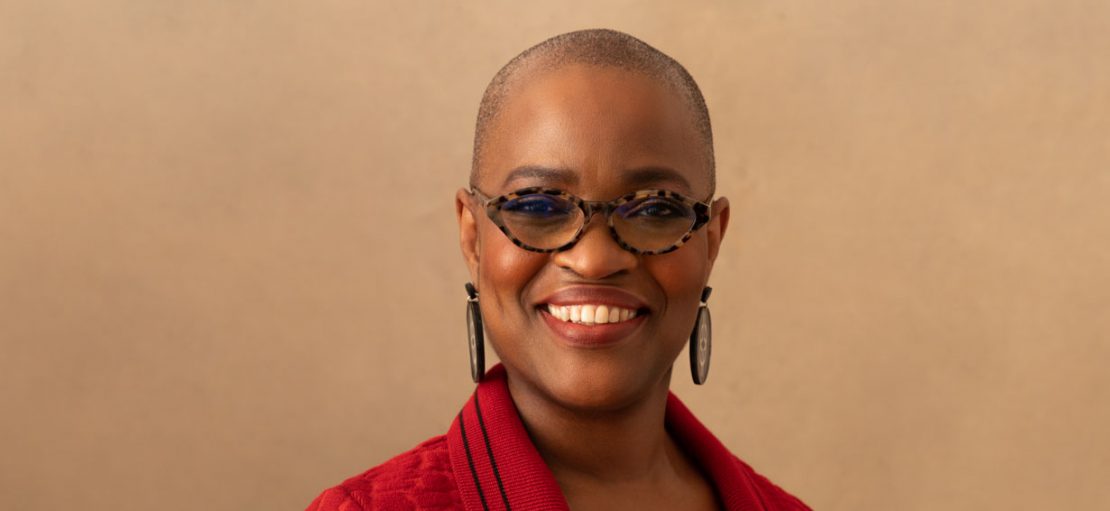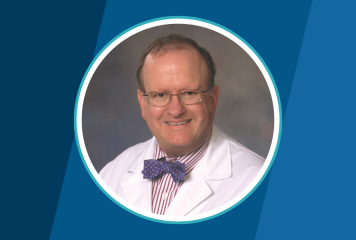Desirée A. H. Walker is the President of the Young Survival Coalition Board of Directors and Co-Chair of the Herbert Irving Comprehensive Cancer Center’s Patient and Family Advisory Council. Diagnosed with breast cancer at 38 and again at 47, Ms. Walker is a dedicated patient and research advocate, health educator and health equity activist. She joined the ABIM Medical Oncology Board in July 2024.
You are extraordinarily active in the cancer community. What keeps you energized and inspired to keep up with your involvement? What is still challenging?
I had no background in the oncology space, but being diagnosed as a young adult, I was taken aback because I realized how little I knew and I felt ill-equipped to self-advocate. Over the years, I’ve seen so many gaps and health disparities that I’ve made it my mission to educate myself and advocate for others. If I have the opportunity to be alive, I want to be a part of the conversation that needs to be had for patients, survivors and “thrivers” equally. In the realm of health disparities, I want to make sure the voices of the underserved and underrepresented are heard. Since members of my community are often described this way, I feel I can add great value.
My advocacy is very different from other advocates in terms of the types I’ve gotten involved in (i.e., patient, research, legislative, to name a few). It’s not that I have a greater love for one more than the others; it was based on the needs. When I attended conferences, meetings, Hill Days, etc., I didn’t see people that looked like me and could speak to the real situation(s) as I lived it. If I have the opportunity to have a seat at the table, I want to be the voice making sure my concerns are heard until there are more voices that represent us.
What’s still challenging is respect and access. I often attend scientific conferences and although they’re talking about research to advance science for cancer patients, survivors and thrivers, they often forget who they’re really trying to serve. They don’t often seek the patient perspective. They have some researchers and clinicians thinking they know what is needed and do not ask how the patient feels is important. Also, some conferences say patient advocates are welcome but the registration fees and/or hotels are exorbitant and they don’t offer a scholarship, which leads me to say, how are we important if you don’t make it easier for us to attend? I want to feel that you’re listening, not that you give me a platform to talk but then don’t make any changes based on the feedback I’ve provided. It’s getting better than when I started but we are not there yet in terms of advocates being fully represented at conferences and in spaces where they say they’re working to make a change so people have better quality of life after a cancer diagnosis.
What’s something you’re proud of as a result of your advocacy work?
When I first started doing outreach, I gave talks on breast, cervical and ovarian cancers. After these meetings, people would always come up and take a business card, and sometimes I heard from them later. On one occasion, I received a call several weeks after I had given the talk and the woman said she was calling just to say thank you. As she had listened to me talk, she realized she had not been to a gynecologist in some time and was not staying on top of her health. The next morning after my talk, she made an appointment with her GYN. On the phone, she thanked me because her gynecologist found something and she was diagnosed with cervical cancer. Had it not been for my talk and hearing what I said, she would not have gotten an early diagnosis. I was thankful that my words landed—I was sorry to hear about her diagnosis but happy she caught it early. She’s still doing well, many years later. That was one of my special moments.
I used to work on Wall Street and one of the presidents of a company I worked for used to say, if you’re not part of the solution, you’re part of the problem; it’s what I live by. In the African American and Hispanic communities where I often give talks, people have asked me where they find a support group with people that look like them. I decided to form one. That group is now 12 years old and I started a second group that is now turning 11 years old. I’m proud of them because that is a long time to be in existence. Some of the members have been with me all 12 years. I have individuals who are newly diagnosed and those 30+ years out in their survivorship. We went virtual during the pandemic and as a result, they have become international groups with people from Canada, Africa and around the U.S. participating. We are 100 people strong! I’m proud of the education I’ve been able to provide with various speakers on different topics. I’m proud that they feel they’re in a safe space and getting the support they need at one of the most difficult times of their lives.
I also have the privilege of serving on the central Internal Review Board. When I first joined, I would always ask why the proposed enrollment chart had zeros for certain ethnic groups in the protocols. If we’re advancing science we can’t just have White people in clinical trials. They need to be representative of the people who have the disease. I’ve been serving now for eight years and there have been changes over the years in terms of what the requirements are when study teams put together proposals.
Why did you want to join the Medical Oncology Board? What aspect of the Specialty Board’s work in the discipline is most important to you?
I think because I’ve done so much in the oncology space, I feel comfortable in it. I know the importance of board certification. So many doctors fall under oncology, and they serve a very vital role following a cancer diagnosis. I decided to apply to this position because my desire is to make sure the patient voice is always there as part of the conversation. If I have an opportunity to be part of something that is going to make a difference in the lives of those diagnosed with cancer and their family and support systems, I want to provide perspectives that are helpful in making decisions and strategies about what happens going forward.
How do you view the role of patients and advocates like yourself in upholding the value of board certification? Why is it important to you?
Because of our lived experience as patient advocates, especially our experience in the research world, we have the knowledge to say what is sound and what is important for us as patients, and to be able to lend a strong perspective to the conversation. Things may be done a certain way for years, but based on what’s happening to us in real time, we can suggest thinking about other requirements and reducing or eliminating things we have held true to date. Patients tend to be more focused on the here and now, and not necessarily on procedures or treatments done 30 or 40 years ago which might not be as relevant today. Patient advocates can make a difference in making sure we’re all focusing on the right things.
In your experience as a patient advocate, is there anything you see often that physicians miss in their African American patients?
I have worked with first- and second-year medical students on communication skills. I often say to them, it’s important for you to be able to look at this as a relationship. When we get involved in relationships, we have to understand how to communicate with this particular partner. Each person is an individual and you need to see them as an individual. A doctor may not necessarily be taking into consideration a patient’s cultural norms, why they have the mindset they do, what is necessary for them to know to be able to make decisions. I think there are missed opportunities in training doctors to understand more about cultural norms and communication skills, so they can make sure their patients really feel heard and supported.
What else do you want medical oncologists reading this to know about you?
I am very passionate about this advocacy world. I want people to know that I’m here to be supportive, to brainstorm, to help with any patient perspective that is needed—but at the same time I want to see results. Everyone can tell you about the problems but they’re not always solution-oriented. I consider myself a change-maker and I want to be part of change when it’s warranted. Also, because I’m focused on health equity, I’d like to see in this country and this world that healthcare is seen as a right for everyone—that’s the thing I focus on a great deal in my work: to help us all get to a day when all individuals have access to quality health care and all individuals have an opportunity to live life fully in good health.



